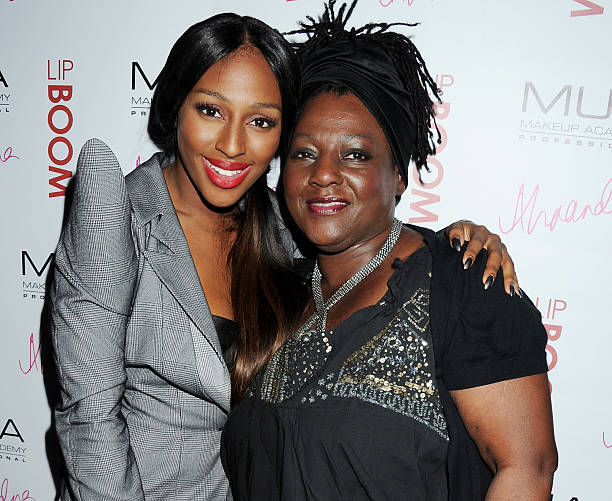How To Express Your Emotions Without Suppressing Them

When you are going through difficult times, it can be very hard to express your emotions. Talking about what you’re feeling and communicating your feelings to others could be really hard. When grieving, it is important to allow yourself to feel all of your emotions. You don’t need to suppress them. Shock, anger, sadness, guilt, confusion are all normal reactions to losing someone. Talking about your heartbreak can inspire and motivate others to share their emotions and help them in their recovery process.
Mourning is individual and only your own journey can heal you.
John Travolta
We looked at how John Travolta expressed his emotions and shared his grief journey just nine months after his wife Kelly Preston died of cancer. John Travolta detailed his experience with grief – said that ” every journey is different” for someone else. After a two-year battle with cancer, Kelly, age 57, passed away in July 2020, in the midst of a pandemic.

It is natural to feel a range of intense emotions when you are grieving. You may feel shock, anger, sadness, and guilt all at once. While it is important to express these emotions, you may find yourself suppressing them instead. This can be harmful to your emotional and physical health.
In this article, we will explore why expression is important and offer some tips on how to express your emotions in a healthy way.
The stages of grief
The stages of grief are well-documented and widely understood. They are like a map that can help you navigate your way through the process of grief. However, it is important to remember that everyone experiences grief in their own way and there is no one right or wrong way to grieve.
The first stage of grief is typically denial . This is when you are in shock and trying to make sense of what has happened. You may find yourself saying things like, “This can’t be real.” or “I can’t believe this is happening.”

Denial can be a defence mechanism that helps you deal with the overwhelming reality of your loss.
Another stage of grief is anger. You may feel angry at yourself, at God, at the world. You may find yourself lashing out at those around you or taking your frustration out on innocent objects. It’s important to allow yourself to experience this anger, but try not to let it consume you.
Another stage of grief is bargaining. This is when you start to come to terms with what has happened and you start making deals with yourself or with God. You may find yourself saying things like, “If only I had done X, then this wouldn’t have happened.”
How to deal with grief
When you are grieving, it is important to express your emotions rather than suppressing them. Suppressing your emotions can lead to further pain and suffering. Instead, allow yourself to feel the full range of your emotions. This can be difficult, but it is important to allow yourself time to grieve in order to begin the healing process.
There are many ways to express your emotions while you are grieving. You can write in a journal. Writing has healing powers and when you write down your thoughts and feelings, it can help you organize your thoughts and emotions, and it can be therapeutic.
It is important to find an outlet that works for you. Cry, and don’t be afraid to dance! Dancing can release endorphins, which are hormones that make you feel good. It can also help to relieve stress and depression. Expressing your emotions will help you to begin the healing process and eventually move on from your grief.
Loss of loved ones doesn’t discriminate. Alexandra Burke shared how she lost her 53-year-old mother Melissa Bell who past away after a nine years battle with kidney disease, on the same day that she took part in the Strictly Come Dancing launch show. To express her grief, Alexandra wrote “The Truth Is for her” album. “I wrote it for her” she said:
“I get scared of life without you. The thing is, I’ve always been the kind of person to sugarcoat how I feel. When people asked me how I was, I used to reply that I was great and everything was fine.
Alexandra Burke

Why expression is important
It can be tempting to try to suppress your grief, especially if you feel like you need to be strong for others. However, it is important to allow yourself to express your grief. Doing so can help you to process your emotions and start to heal.
Suppressing your emotions can lead to them coming out in other ways, such as through anger or anxiety. If you bottle up your grief, it can also lead to depression. Allowing yourself to grieve openly can help you to avoid these negative consequences.
There is no right or wrong way to grieve. You might find that crying or talking about your loved one helps you to feel better. There are also many creative ways to express grief, such as writing, painting, or music. Find what works for you and allow yourself the time and space to grieve in whatever way feels right for you.
Conclusion
It is natural for anyone to want to suppress their grief, but it is important to remember that this will only make the grieving process harder in the long run. It is better to allow yourself to express your grief in a healthy way, whether that means talking to a therapist or writing in a journal. Suppressing your grief will only lead to more pain down the road, so make sure you give yourself the time and space you need to grieve in a healthy way.
If you need help expressing your emotions, talk to a therapist. They can provide support and help you deal with your feelings. Grieving is a natural process that everyone goes through. It’s important to express your emotions without suppressing them.





